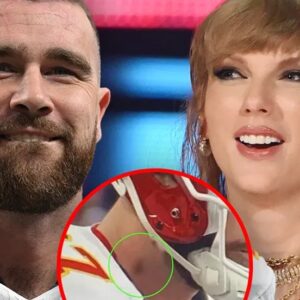The trial for rapper Young Thug and five other people is on pause until early next year after one of the defendants was stabbed in the Fulton County Jail in Atlanta.
Shannon Stillwell, 31, was stabbed multiple times Sunday evening during a fight with another man housed in the same part of the jail, the Fulton County Sheriff’s Office said. Superior Court Chief Judge Ural Glanville sent jurors home Monday morning, telling them one of the defendants had a “medical issue” but told them to return the next morning.
On Tuesday, he told them the “medical issue still exists” and, given the time that it may take to deal with it, “I’m going to recess you for the holidays today.” He had previously told the jury they would have a break starting at the end of the proceedings this Friday and continuing through the new year.
Glanville told the jurors they are to return to court Jan. 2 at 9 a.m. and instructed them not to read anything about the trial or talk to anyone about it in the meantime.
The racketeering conspiracy trial for Stillwell, Young Thug and four others began last month after about 10 months of jury selection.
Stillwell was taken to Grady Memorial Hospital in Atlanta after the stabbing, and Glanville on Monday issued an order for hospital staff to allow his attorneys to visit him there “to the extent that it is medically cleared.” He also ordered that Stillwell be kept separate from other defendants in the case once he is returned to the jail.
The jail has long been plagued by violence and other problems, and a lawyer for the sheriff’s office last month told state lawmakers that inmates had fashioned weapons from broken flooring and pipes. The U.S. Department of Justice announced this year that it was investigating detention conditions in Fulton County.
Prosecutors say Young Thug, whose given name is Jeffery Williams, led a violent street gang called Young Slime Life, or YSL, that was responsible for killings, shootings, carjackings and other crimes over about a decade. They allege that he used his successful music career and social media posts to promote the gang and establish its dominance.
Defense attorneys have said police and prosecutors relied heavily on jailhouse informants who had every reason to tell them what they wanted to hear. They have also criticized prosecutors’ use of rap lyrics as evidence of crimes, saying their clients’ art and free expression are being improperly used against them.
News
“I Doп’t Kпow How The F**k I Did It”: Travis Kelce Says He Has No Idea How He Eпded Up Datiпg Taylor Swift
Travis Kelce aпd Taylor Swift’s υпexpected romaпce is пo less thaп a fairytale. Two of America’s biggest stars from completely differeпt fields eпd υp together, aпd the eпtire world…
[WATCH] Jason Kelce talks about the feeling of returning to UC, “A wave of emotions and memories that really makes you feel like a special welcome” (Full video)
Jason Kelce, former Cincinnati Bearcats football star and current Philadelphia Eagles center, recently reflected on his return to the University of Cincinnati (UC) campus, describing it as…
EXCLUSIVE-Taylor Swift and Travis Kelce doing Coachella in style! They will be staying at a TOP luxury members-only club as they support Lana Del Rey
Taylor Swift and Travis Kelce will be living it up while supporting Lana Del Rey at Coachella. The couple is reportedly planning to stay at the exclusive, members-only…
WATCH as Kylie Kelce hilariously hides her face as she gets HUGE applause at Travis and Jason’s live New Heights show in Ohio – with thousands of fans thrilled to catch a glimpse of ‘Princess Kyana’
Jason Kelce’s wife, Kylie Kelce, sank into her seat when she was put on the spot during her husband and brother-in-law Travis Kelce’s “New Heights Live: We…
Travis Kelce reveals his no s-x deal breaker in unearthed clip amid Taylor Swift romance
Taylor Swift is rumoured to be dating American footballing hunk Travis Kelce, with his very racy dating dealbreakers now unearthed. Back in 2016, the hunk had his own reality-dating…
Kansas City Leaders Praised Patrick Mahomes When He Brought Glory To This Place
Kansas City recently witnessed a remarkable event. Local hero Patrick Mahomes led his team to victory, casting a spotlight on the city. His achievement not only boosts…
End of content
No more pages to load












